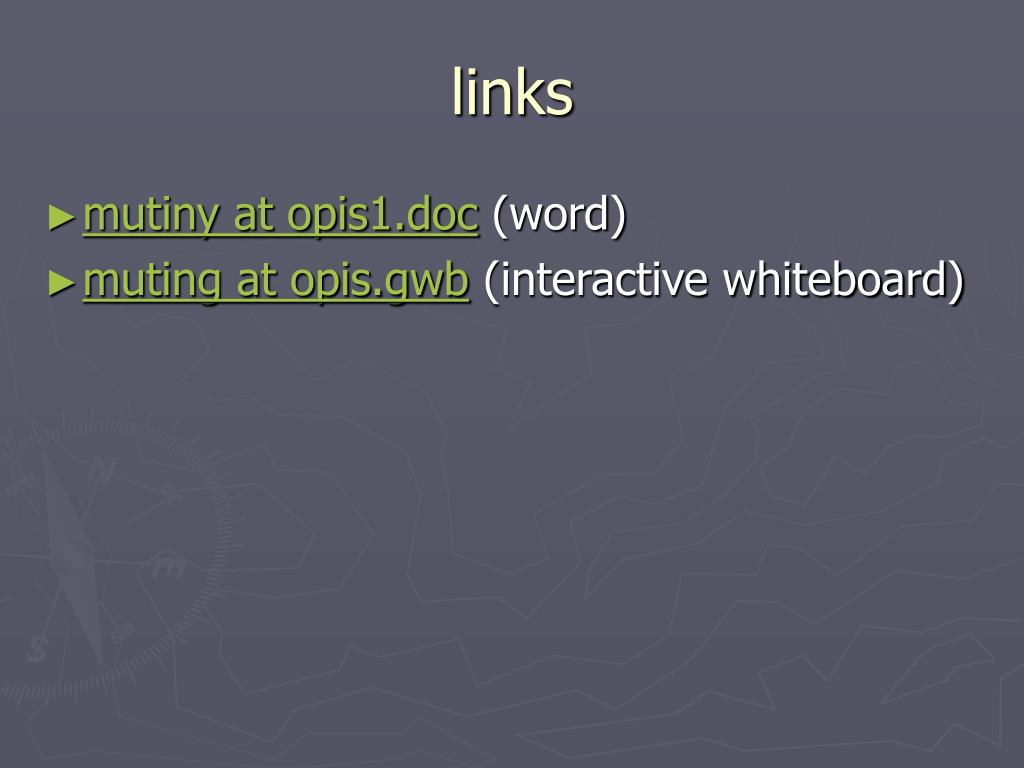

The latter half of the book describes Alexander's pursuit of Darius through northern Iran, the revolt of the pretender Bessus, and the deaths of Philotas and Parmenion (331–329 BC).
#Opis mutiny timeline trial#
The trial of the Gordian Knot is also included in this book.īook three begins with an account of Alexander in Egypt, including his visit to the oracle of Zeus-Ammon at Siwah (winter 332/331 BC), before turning to the battle of Gaugamela and defeat of Darius III (331 BC).

This book also recounts the defeat of King Darius of Persia and how Alexander treated Darius's family after his death. The majority of this book is dominated by three large set-piece military operations: the campaign and battle of Issus (333 BC) and the sieges of Tyre and Gaza (332 BC). This book covers the early years of Alexander's reign (336–334 BC), including notable descriptions of Alexander's sack of Thebes in 335 and the battle of the Granicus in summer 334 BC. After a short Preface concerning Arrian's sources, the seven books describe the reign of Alexander the Great. The Anabasis gives a broadly chronological account of the reign of Alexander the Great of Macedon (336–323 BC), with a particular focus on military matters.

One of Arrian's main aims in writing his history seems to have been to correct the standard "Vulgate" narrative of Alexander's reign that was current in his own day, primarily associated with the lost writings of the historian Cleitarchus. Arrian's chief sources in writing the Anabasis were the lost contemporary histories of the campaign by Ptolemy and Aristobulus and, for his later books, Nearchus. Nor does Arrian aim to provide a complete history of the Greek-speaking world during Alexander's reign. It is primarily a military history, reflecting the content of Arrian's model, Xenophon's Anabasis the work begins with Alexander's accession to the Macedonian throne in 336 BC, and has nothing to say about Alexander's early life (in contrast, say, to Plutarch's Life of Alexander). The Anabasis is by far the fullest surviving account of Alexander's conquest of the Persian empire. Both the unusual title "Anabasis" (literally "a journey up-country from the sea") and the work's seven-book structure reflect Arrian's emulation (in structure, style, and content) of the Greek historian Xenophon, whose own Anabasis in seven books concerned the earlier campaign "up-country" of Cyrus the Younger in 401 BC. The Anabasis (which survives complete in seven books) is a history of the campaigns of Alexander the Great, specifically his conquest of the Persian Empire between 336 and 323 BC. The Anabasis of Alexander ( Greek: Ἀλεξάνδρου Ἀνάβασις, Alexándrou Anábasis Latin: Anabasis Alexandri) was composed by Arrian of Nicomedia in the second century AD, most probably during the reign of Hadrian.


 0 kommentar(er)
0 kommentar(er)
